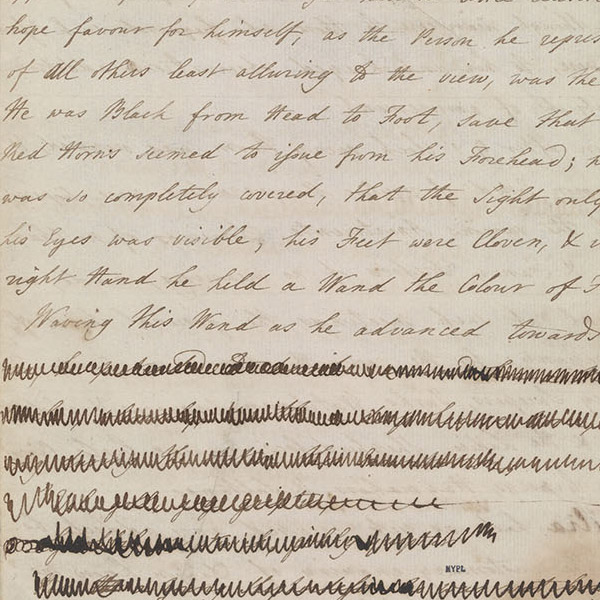Digital Paleography Uncovers Deleted Text, Author Censorship
by

Digital Paleography Uncovers Deleted Text, Author Censorship
April 12, 2023
Hilary Havens, associate professor of English at the University of Tennessee, explains how she uses digital paleography, a process she developed and published, to uncover deleted text within a handwritten manuscript of Frances Burney’s Cecilia (1782).
Photo courtesy of the Berg Collection, New York Public Library.
Associate Professor of English Hilary Havens is editing a critical edition of Frances Burney’s 1782 novel Cecilia, and she uses digital paleography methodologies she has developed and published to uncover deleted text within the Cecilia manuscript. The recovered text reveals important things about Burney’s creative process of composition, and some of the material—including a scene containing satanic rites spoken in the Coptic language—has the potential to change prevailing views of Burney and her novel. At a time when women were expected to conform to strict codes of conduct, Burney’s manuscript draft shows the extent to which she was forced to compromise in the face of pressure from her familial and literary circles. Images courtesy of the Berg Collection, New York Public Library. Photo courtesy of the Berg Collection, New York Public Library.
(Taken from Volunteer Stories article on the UT Humanities Center.)